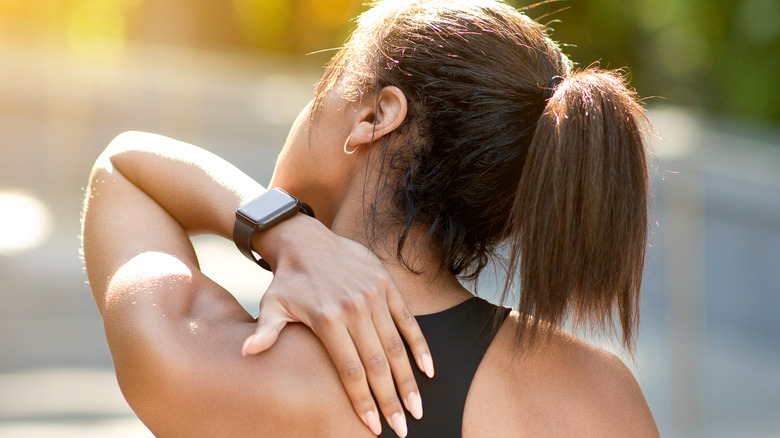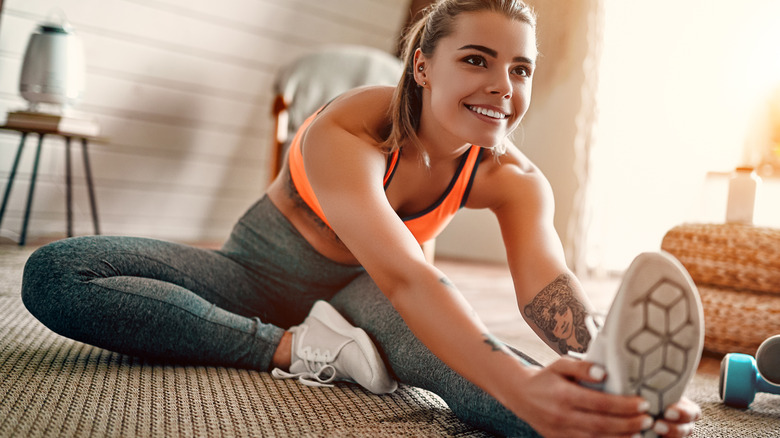What To Do When You Get A Cramp During A Workout
Imagine working out and feeling great, and, out of nowhere, you get a muscle cramp. This painful and pinching pain on your muscles can happen to anyone, so what exactly causes these muscle cramps, or charley horses, as you may know them? "The main culprit is running out of the fuel that helps muscles contract and relax, and they wind up stuck in an 'on' position," exercise physiologist Dean Somerset, C.S.C.S., told Self. This consequently leads to a sudden halt because you can barely move. Somerset blames electrolyte imbalance in the body because when you're working out, the heat and dehydration can alter the sodium-potassium balance that helps in the contracting and relaxing of the muscles. This prevents them from relaxing.
According to PMC Labs, one muscle cramp study primarily blames dehydration as the reason you get cramps during or after a workout. Dehydration shakes up the water-salt balance in your body, causing painful and involuntary contractions of the skeletal muscle that can happen at any part of your body. The study further added that another reason for a muscle cramp is neurological by nature. In this case, it's not a result of working out but rather a disease of the central nervous system, in which case you should see your physician. If you notice your cramps to be too painful and/or too frequent, consult a professional before continuing to work out.
This is how to treat and avoid muscle cramps
There is no sure way to avoid cramping during a workout because they can be caused by many factors. But what should you do if you get one? "Stop the movement that caused it, breathe deeply, and lightly massage [the area]. Be patient and try to remain calm," Kate Bishop, a personal trainer at Find Your Trainer, told Self. This is because massaging the area can help relax your muscles. Since muscles are contracting during cramps — and is completely involuntary — Bishop added that practicing workout precautions and staying hydrated can help keep you cramp-free.
VTFC says that overworked muscles and neuromuscular fatigue are two of the biggest causes of exercise-associated cramps. They recommend neuromuscular re-education, which is when you train weak muscles so you can stop putting as much stress on the overactive muscles. Keeping proper form during workouts and trigger-point dry needling can help this training.
According to PMC Labs, a muscle cramp study showed that no single treatment is consistently effective because the cause and intensity of cramps are different per person. Moreover, there's strong evidence that the most effective treatment for muscle cramping is passive stretching, which is when you stay in one position for a set amount of time (via Healthline). Another helpful suggestion is to stretch both before and after your workout. Though it won't help cramping caused by dehydration, it will help prevent injuries that can cause cramps, such as muscle spasms.

